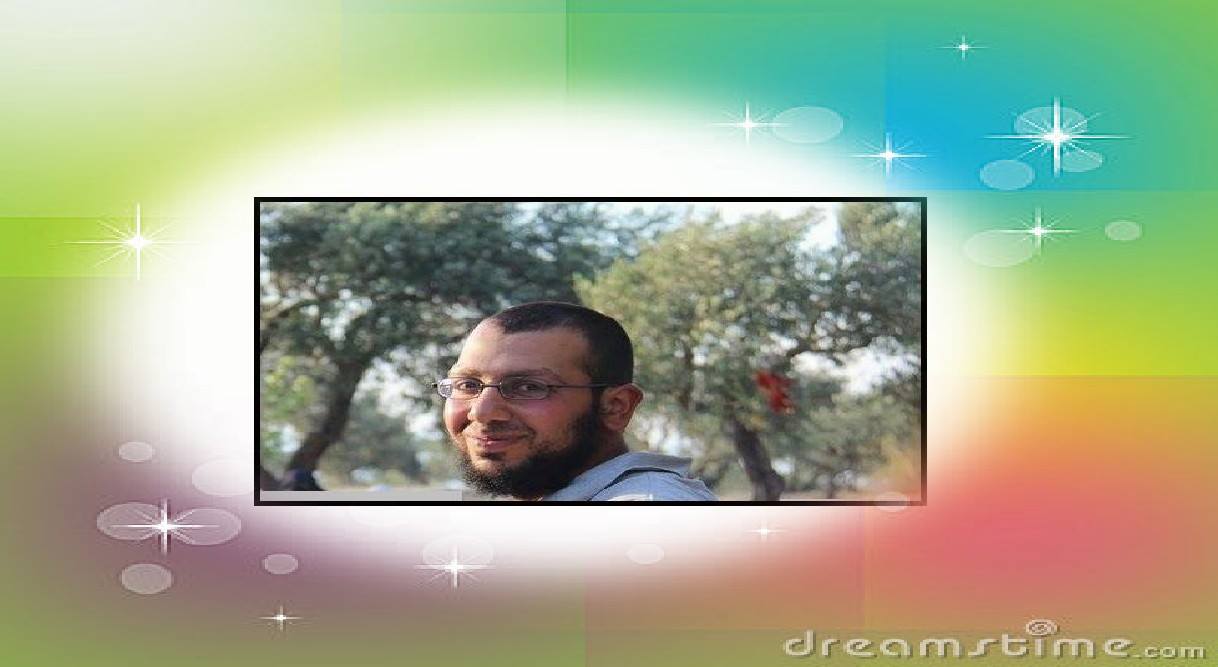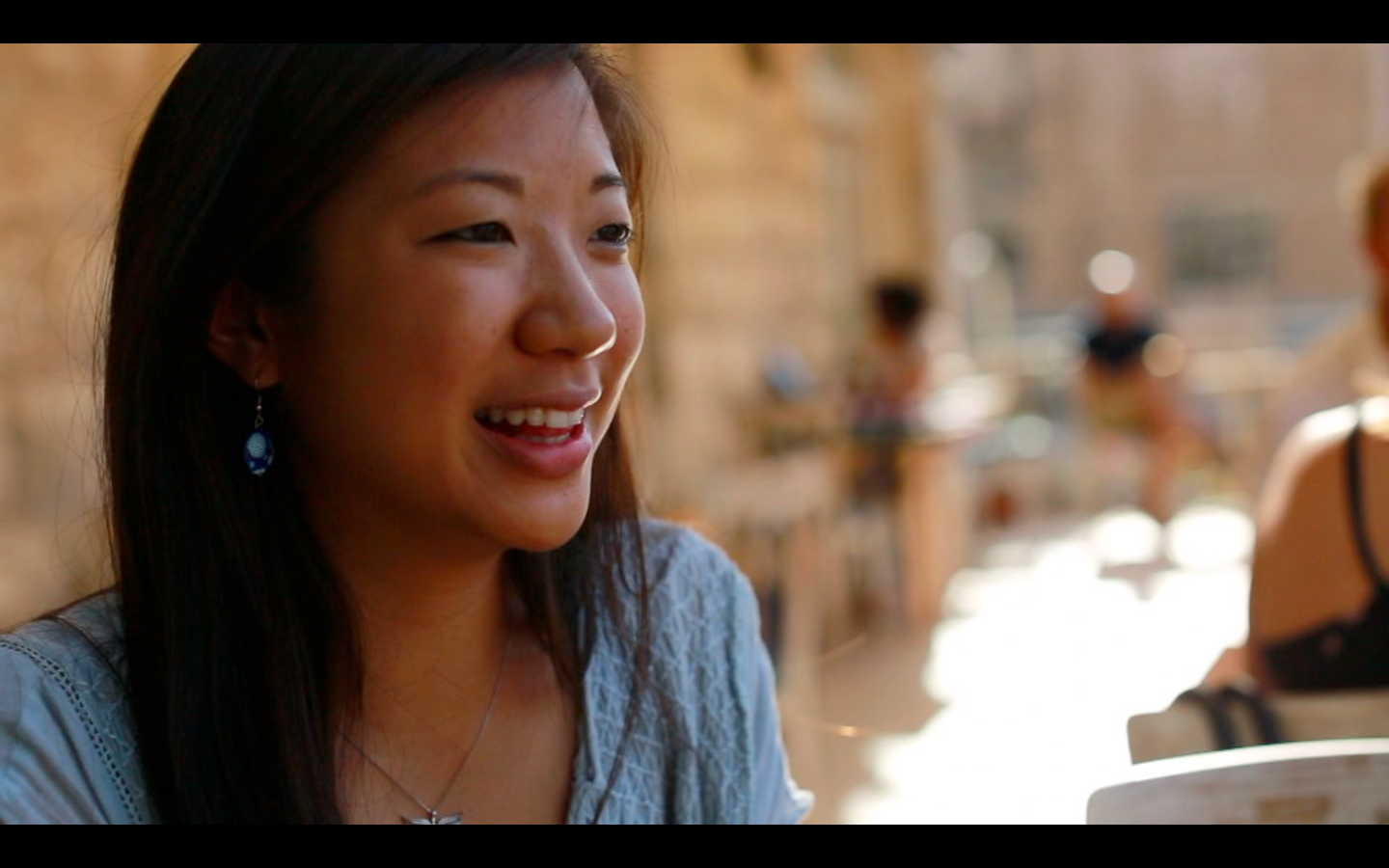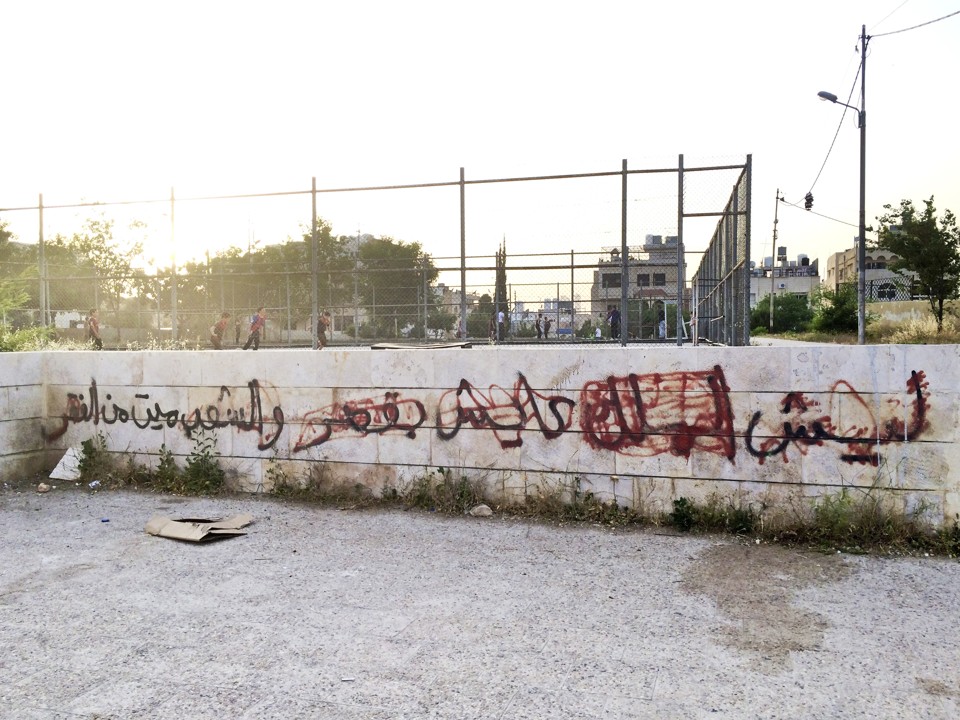
AMMAN, Jordan – "How are you sure that your son is shaheed, a martyr?" I ask Umm Jihad. We sip orange soda, fanning ourselves in the surprise heat of this day. Cartoon Network plays in Arabic in the background. Her teenage daughter and 18-year-old friend are smirking and slouching throughout the evening, tapping away at their smartphones and leaning in, then out, of our conversation.
"I am convinced that, inshallah, he is a martyr," she says.
Umm Jihad is 44 years old. Her hair is dark and smooth, brushed back in a clean echo of the kohl under her eyes. I kiss and call her aunty, then sister, then dear.
I've come to hear about her son, 21-year-old Jihad: activist and school leader, protester and bleeding heart, the type who'd trek to Dakhiliyya Circle and sleep all night in the cold, defiant in exhaustion, waving signs about civilians' rights, boycotting parliamentary elections, then coming home to sit before their television and watch news about Syria until he cried.
"Jihad is Jihad and has always been Jihad," his mother says. "There's one thing about him that's never changed whether he was a kid or a tawjihi [high school] student, then in university, then in Syria: Jihad couldn't bear injustice. He could never just stand by when anyone was being oppressed."
Once, Jihad and his mother passed a man beating a donkey on the street. Jihad ran to the man and berated him: Why hit the donkey? Why treat your animal this way? "Sho dakhelt fi yamma? Why is this your business?" Umm Jihad scolded her son. Jihad turned to her, a wave of conviction. "Mama, this is my business. Mama, mustaheel—impossible for me not to care."
"He treated donkeys this way," Umm Jihad said. "What about Syria?"
The interview starts out fine. I am skeptical, cynical, questioning, listening, taking notes and sifting as I transcribe, telling myself what to second-guess, ask again, press here, push there, but then, oof – "Listen, habibti, habibti," Umm Jihad says. "How can I try to say this to you?"
Try, I tell her. Try. Try. I'm listening. Tell me. Help me to hear.
Suddenly Umm Jihad leans forward and I'm seeing her as a mother.
"I told him every time he called, 'Come home,'" she says.
"Then I realized I couldn't. I couldn't do anything."
Do you think he did the right thing? I ask. I am pressing for an answer. I want her view on Jihad. I want her condemnation or condoning of the extremist groups. I want to know if and why she endorses Jabhat al-Nusra and ISIS and their supporters in Jordan. I want to ask, ask, ask, ask, I'm asking.
Her face twists.
"I tried to make him come home but khalas, khalas, I couldn't," she says.
"I cried every night and day," she says.
"This is his naseeb, his portion. It was God's will for him to die on October 24, 2014," she says.
"The most important thing is that he didn't kill anyone."
"I swear I know, he didn't kill anyone."
"I had to pull the words out of his mouth. He wouldn't tell me things. He just said, 'Pray that I can be a martyr.'"
"No, Jihad couldn't be controlled. I could only tell him, 'Don't kill Muslims. Don't kill a Muslim. Don't kill one, because if you do you will go to hell.' And he told me, 'I don't want to kill any Muslims, mama. All this fire is for Bashar al-Assad. Look at how our brothers and sisters are suffering. Look at the children splattered into pieces by the barrel bombs. Look at the chemical weapons. It's all for him, against him. We must take him down."
"I am sure. I am sure he never killed anyone."
"This is the only thing that makes me a little more comfortable. He died before all this chaos began, when good and bad were still clear. Nusra was always moderate, good to the civilians, good. He was on the right side. His heart was right. He didn't go for girls or money. He went to help people, like he's always wanted. That's the only consistent thing about my son. He couldn't bear injustice."
"I am convinced that, inshallah, he is shaheed."
Darling woman, dearest, dear, how do you know?
I watch Umm Jihad turning circles in her words, convincing herself that surely Joojoo, her little son, the one of softest heart, the one who loved himself into fire, surely he is safe and well. Surely he chose the right way, blessed way, found freedom and paradise.
She shows me pictures of him as a baby, then in high school, tawjihi, asleep on the floor with books all around from too much studying. She shows me pictures of him with guns and beard, waving the Nusra flag, blood-splattered, dead on the ground in Syria.
She used Magic Photo—photoshop for amateurs—to cobble a collage together. Jihad spread chest down, passed out over his tawjihi books. Next to Jihad spread chest down, bullet hole dripping in his back, shot by a Syrian regime sniper in Idlib, dead.
She made sparkly graphics, purple, cerulean and pink, of Jihad in the sky. Jihad in the snow. Jihad in the cheesiest nature backgrounds with reassuring Arabic imposed over the sky: Thanks be to God for the martyr who has found paradise. Glory be to God and may He come and thanks be to Him for the martyrs. The martyr Jihad, her son. His smile is pixelated, blurred.
"I am convinced, inshallah, that he is a martyr."
"You know what this word means? Shaheed and jinna? It means he died for God. He died in a good way. So he is in jinna now with all the sweetest things, the best things, nothing bad around him, free. Free. Jihad didn't want anything left in this world. He wanted to die. God wanted him to die. I am convinced and I can only believe this now, that he is in paradise and accepted by God, inshallah."
Umm Jihad likes me so much. By the end of the night she is kissing and blessing me, laughing through teary eyes. I've been telling her about my work, Iraq and Gaza and refugees and wars. "Shatera," she calls me, "So clever, so sweet." She clasps my hands and cheeks. "Zay al-aasal," she says. Like honey, like honey.
"You would understand Jihad. He was like you," Umm Jihad says, and I say yes, I thought that! I too watched the news about Syria and cried. I too do that every week still. But I cannot and will not pick up a weapon, cross the border and fight. My weapons are different.
"Yes, you are more logical. You are clever and smart – maybe you make more impact with your stories than he did," she says. "Oh, and you are a girl. You couldn't fight."
I smile. Sure, ana bint, and my ways are different.
But in my mind I think, dear mother! Dear sister, dear one, dear, I am so sorry for your son.
I am so sorry for your tears.
I do not know where your son has gone.
I do not dare to presume.
Yet if God is merciful, gracious, good, surely He does not call us to fight in this way.
I need answers for my sisters. I need answers: what could Umm Jihad do when her son was in Syria? What could she do when Jihad's heart was fit to beat right out of his chest? Who would listen to him? Who would care?
I see Umm Jihad's face twisting, heart sore. "Our religion tells us what is right," she says. "We must fight injustice. Syria is Jihad. Yes, this was right. Yes, they should go and fight. Yes, this is our duty in religion. Fight without weapons? How? We must defend our Muslim brothers. We must defend our sisters and children. We must fight for those without voices, those oppressed, those put in cages and set on fire. We must fight, and it is right for us to support our children's fighting, and those with little faith might say, 'No, stay with me.' But she with great faith will support her child to go."
"I am speaking for Islam," Umm Jiahd says, "Not as a mother."
"As a mother, this is difficult. This is right, but it is difficult."
"I should let him go and want him to fight – no, yes, no, yes – this is clear. Our religion is very clear."
"But it is difficult."
I want to melt her sorrow, loosen her clenched fist of faith, clean out the fear. These things must be untrue. I cannot believe that God would demand our sons to topple into pointless death – to war, to chaos, to meaningless sacrifice, to fire, to burn, to die. How could that be good?
I don't believe it, but I am so afraid to tell my sister: maybe your son isn't shaheed. How can Umm Jihad reject militant jihad without cursing her own Beloved? How can I speak against the violence without twisting a knife into her fears? Surely that's no good either – to condemn, to curse, to tug on a mother's terror, to suggest her son is not in rest and bliss.
There are some questions I don't ask.
I hold my tongue. I take notes. I listen.

Education Resource
Meet the Journalist: Alice Su
Why do young people from Jordan and Tunisia decide to join militant groups in Syria? Are they driven...








